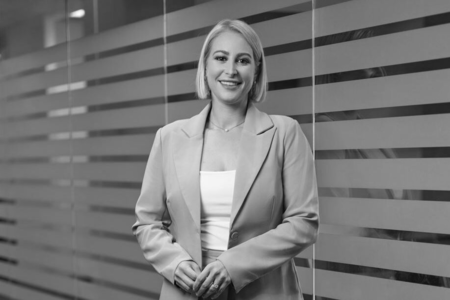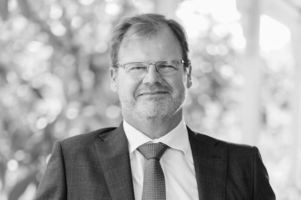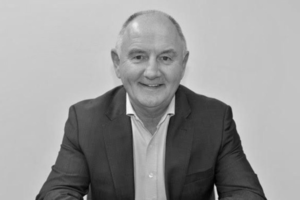Scaling through M&A? Ask yourself these four questions firstBY XAN KITCHIN | FRIDAY, 27 JUN 2025 1:59PMGrowth has suddenly become sexy again and the temptation to jump into a commercial contract or private equity purchase arrangement that builds overnight scale is a clear and evident allure to hard working advice practices. Yet, the bar for resilience in advisory businesses has never been higher. With tighter regulation, savvier clients, and succession planning now a business continuity issue - not just a retirement plan - building scale and sustainability for any modern financial advisory practice is a compelling if not necessary pathway. Growth may be good, but too often, it's equated singularly with M&A. The logic sounds simple: build scale, buy success. But mergers only work when both sides are strong. Without operational discipline, financial synergy, defined roles, and cultural alignment, M&A doesn't solve problems. It exposes them. You might boost the top line but erode the foundations in the process. Before you draw up deal structures, ask yourself:
If you're hesitating on any of these, it's a sign to pause - not proceed. Strengthen your core before entertaining anything bigger. Good growth is hard work and deliberate. It begins with clarity of purpose, strong systems, and a team aligned behind a shared purpose. What's often underestimated? Cultural integration. Unless your values and approach genuinely mirror those of the firm you're acquiring, even loyal clients may struggle to adjust - especially if the new experience feels like a downgrade from what they've come to expect. That's why M&A should never be an automatic Plan A. Deal-making won't fix what shaky foundations can't support. Lessons from the field - the dual deal While the theory of M&A might sound straightforward, the real test lies in execution -especially when legacy and long-term alignment are in play. A recent transaction brought that lesson home. On one side was a retiring adviser - we'll call him Brian - who'd built decades-long client relationships. His priority wasn't price; it was continuity for the clients who had relied on him for years. On the other side were two early-career advisers from the Infocus Wealth Management network. Ambitious and driven, they needed the right structure, mentorship, and environment to grow into leadership. At first glance, it wasn't an obvious match: different generations, career stages, and a deal structure involving both an equity swap and capital raise. But what made it work was something you won't find in a balance sheet: shared values and mindsets. This wasn't just a client handover. It was a convergence of careers, cultures, and intent. Legacy, it turns out, is a powerful motivator. What made this deal succeed wasn't the mechanics - it was the people. Everyone knew what integration required: process change, cultural alignment, and a clear path forward. Governance, roles, and expectations were locked in early because everyone needed to be on the same page - strategically and operationally. Execution was smooth because everyone understood the real objective: continuity, not control. And it worked. Clients stayed. The team gelled. And Brian walked away knowing his life's work was in good hands. The takeaway? Deals don't succeed on paper. They succeed with people. And nowhere is that truer than in succession. What real succession takes - people over paper It came down to a warm handover - and the trust that came with it. Brian didn't want to just cash out. He wanted confidence his clients would be supported, not churned. That mindset is essential. Succession isn't a transaction - it's a transfer of trust. And trust must be earned and sustained. Buyers often underestimate how emotionally invested clients are in their advisers. You can't just show up and expect loyalty to follow. In a people-first profession, relationships are the asset. Clients don't stay because of a logo -they stay because they feel seen and trust who's looking after them. If that connection breaks, even unintentionally, attrition risk skyrockets. No deal model can compensate for that kind of loss. To this day, Brian remains a reference for us. That tells me we got it right - not because the deal was well structured, but because the handover was treated as a human relationship, not a financial event. That made all the difference. Preparing to be a succession-ready business The best succession outcomes aren't born at the negotiating table. They're built years before, inside businesses that are already structurally and culturally ready. Clear leadership, strong systems, and knowledge that's shared - not siloed - make transitions smoother. Defined roles and repeatable processes give successors something stable to step into - and give founders the confidence to step away. Scalability requires more than ambition. It demands discipline: clear swim lanes, cohesive culture, a board of advice (formal or informal), and goals that extend beyond any one person. That's how you build a business that outlasts any individual. And sometimes, the smartest move is to walk away. Cultural mismatch or weak leadership can tank integration, no matter how attractive the numbers look. Succession readiness also means preparing future leaders. In advice, talent is capacity - one adviser can only support so many clients before quality slips. Sustainable firms build their bench early and often. That's what separates generational firms from those chasing short-term revenue. The bottom line - strong foundations first There's no magic or one-size-fits-all formula for growth or succession. But if there were, it might sound like this: Do great work. Build a good team. Keep your value proposition simple - and deliver on it, every time. Here's how to get there:
If you want scale that lasts-or a succession plan that sticks-start where it counts. Because deals don't build businesses. People do. |
Latest News
Shaw and Partners splashes $63m for New Zealand expansion
4600 relevant providers yet to meet qualification standards: ASIC
Nominations open for 2025 Power50
AFCA urges adviser clarity on SMSF wholesale investor test
Cover Story

Moving mountains
FOUNDER AND FINANCIAL ADVISER
MAZI WEALTH























